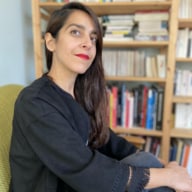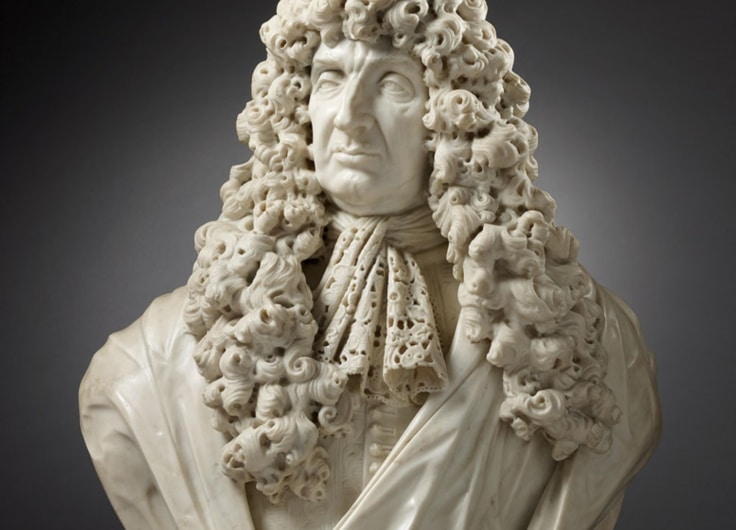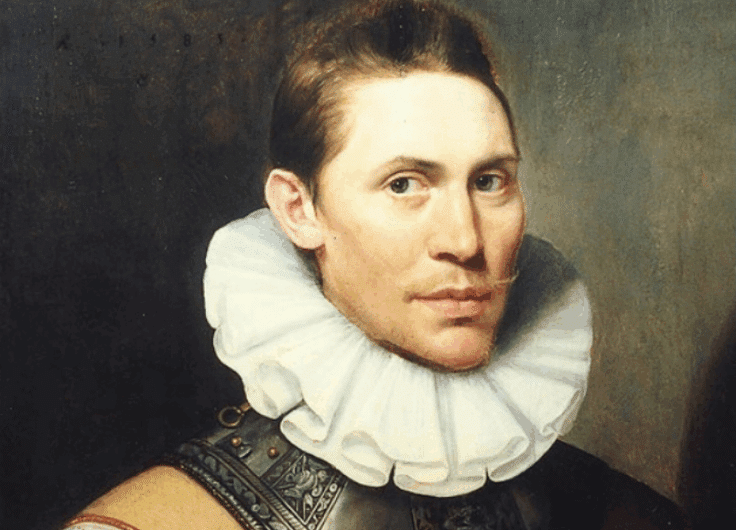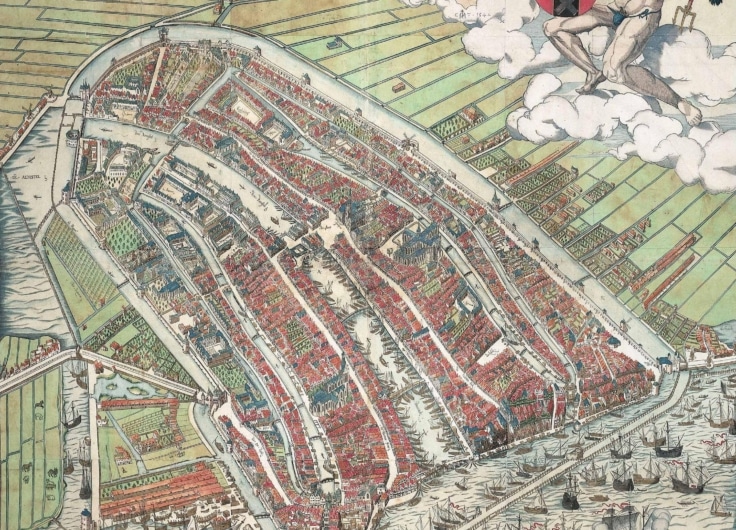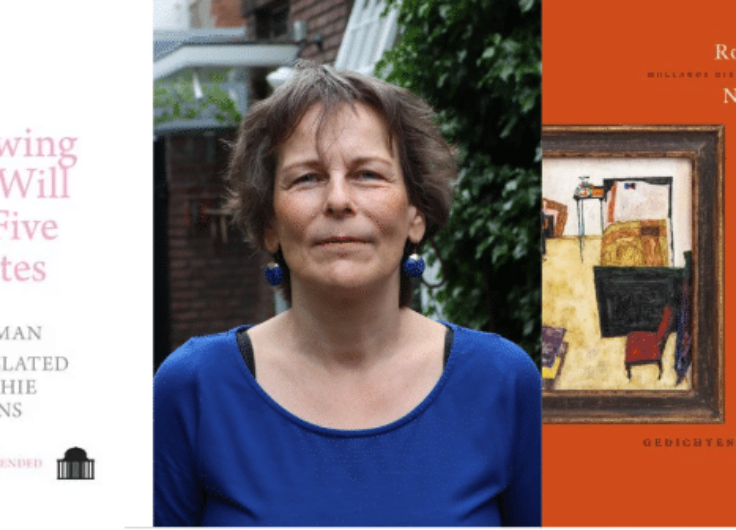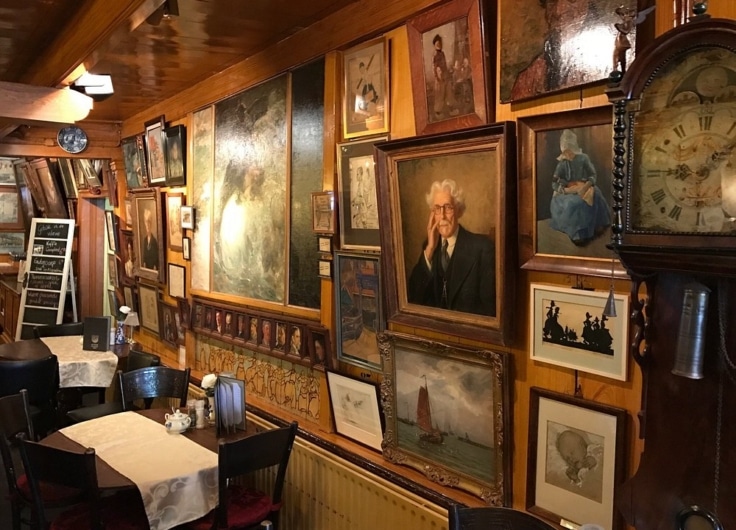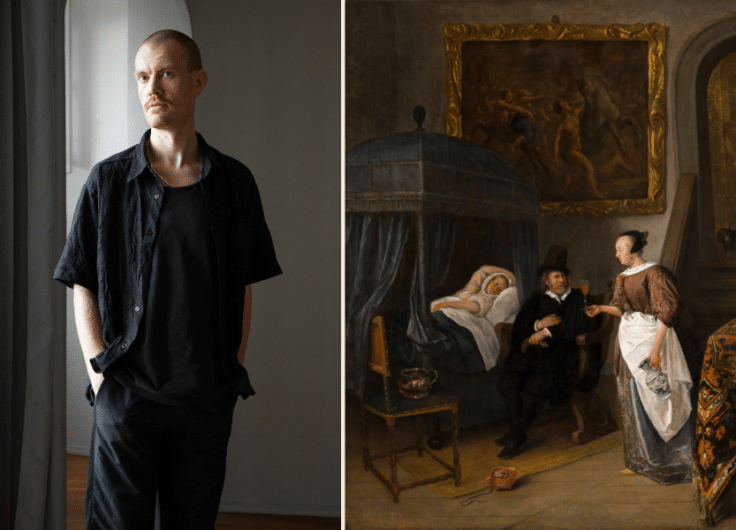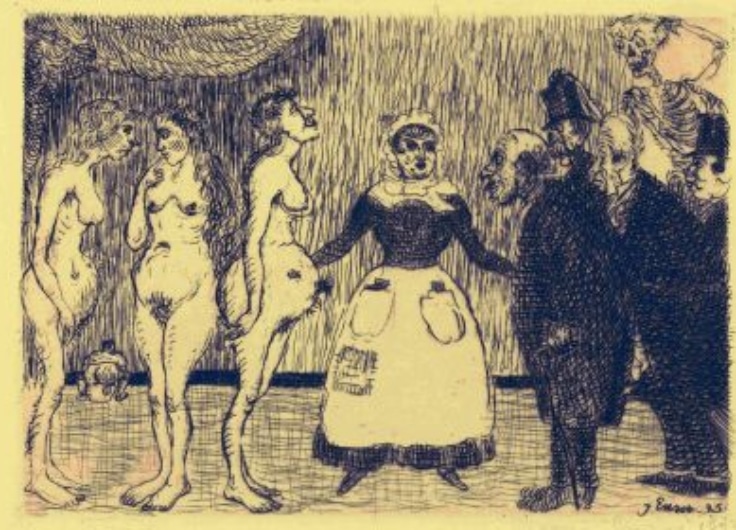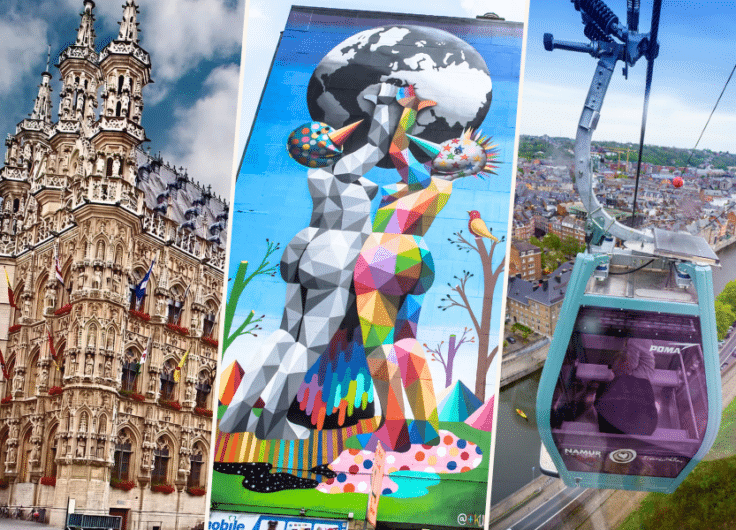Globe Aroma: A Third Place for Artists from Elsewhere
Globe Aroma, an association dedicated to multidisciplinary arts and welcoming ‘new arrivals’ is nestled in the very heart of the Brussels Dansaert district. This centre provides support to refugees, migrants and illegal immigrants in their art whilst giving them the opportunity to discover a wide range of cultural offerings in Brussels. It is a place for observational learning that promotes the arts and social well-being.
This year, Globe Aroma is celebrating its 20th anniversary. In 2002, Johnny De Mot, a Brussels priest, noted how invisible artists were among the refugees and asylum seekers from the four corners of the world. In order to fill this gap, he found a house to accommodate them and to offer them the opportunity, despite everything, to continue practising their art.
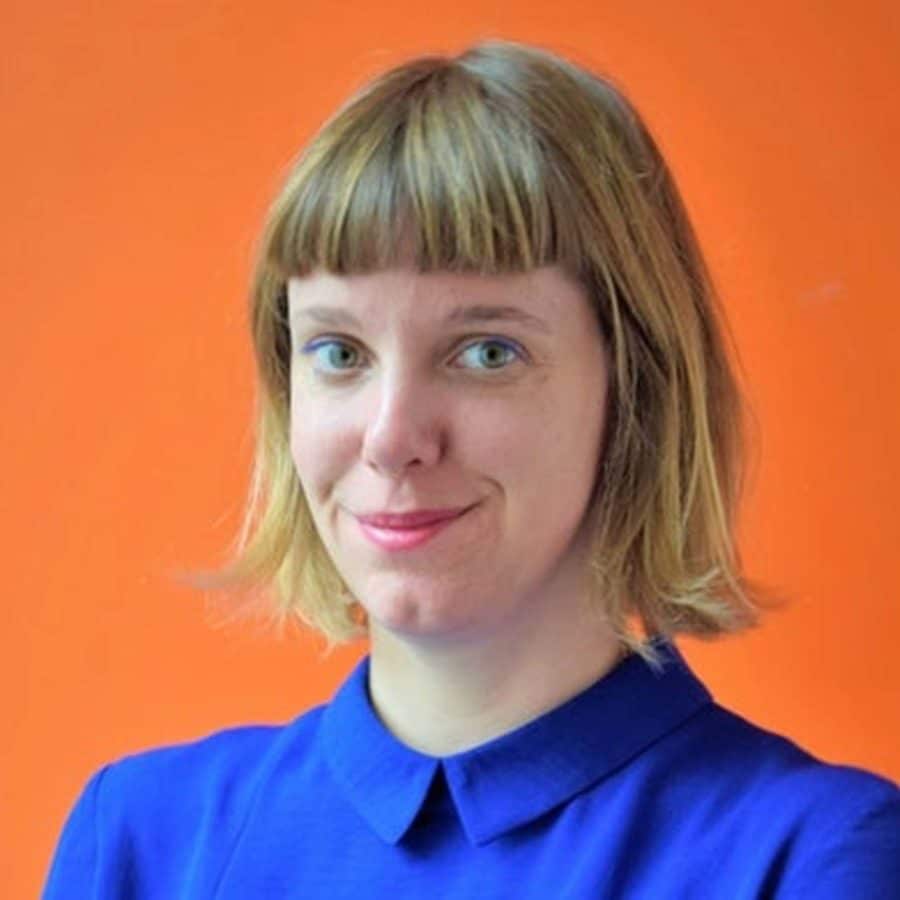 An Vandermeulen, director of Globe Aroma
An Vandermeulen, director of Globe Aroma© Elisabeth Ida Mulyani
Since 2019, director An Vandermeulen has been breathing new life into this home cum shelter by promoting and encouraging a growing level of collaborative creativity. This cultural centre, which is constantly putting newly arrived artists in touch with cultural organisations, was founded on three pillars: supplying the visual artists with workshops, setting up co-creation projects for those who are naturally creative (without the need to have had any formal art education), and finally, organising cultural outings throughout the Belgian capital (and sometimes in Antwerp as well). The house has a ground floor consisting of a kitchen and – an inviting – table for meals, a co-working space, a music room, an internet area and a meeting room; the first floor has workshops for the visual arts, textiles and digital.
A personal studio
The dozen or so workshops are held in an open space, and they are not selected at random. Careful thought is given to the needs of the new arrivals and to the infrastructure that would suit them best, always mindful of their well-being. Every artist is allocated a tailor-made workshop and materials (canvases, brushes, a sewing machine, paper, etc.). An Vandermeulen: ‘These new arrivals face many difficulties, financial or psychological, in developing in their chosen art form. We are here to overcome those stumbling blocks.’ With the help of subsidies from the Flemish government, the Flemish Community Commission and the City of Brussels, the association is able to offer these workshops, materials and cultural outings free of charge.
For this house that shows such great commitment, helping them become professional artists is vital here
However, for this house that shows such great commitment, providing infrastructure and supplies is still not enough. Helping them become professional artists is vital here. ‘What people miss when they arrive in a new country, is especially the conditions they are used to, the contacts, the links with people who have the same calling. They no longer have any network, and we all know how vital that is to be able to develop.’ Globe Aroma therefore actively organises meetings between the artists and the cultural hub. As a result, gallery owners, musicians, concert or dance hall managers are regularly invited to Globe Aroma, to come and discover what the community has been creating.
An Vandermeulen adds: ‘Setting up these links is extremely important. After all, our main aim is for our artists to progress to the next stage.’ However, those who do not aspire to this may still continue to practise their art. There is no time limit for vacating a workshop either. Every three months, the cultural centre launches an open call to inform people of any available spaces.
Collective and creative emulation
And what if you are not an artist? That’s perfectly alright as Globe Aroma also welcomes anyone with a natural inclination toward the arts and culture. An Vandermeulen explains: ‘The idea of the co-creative projects is to carefully listen to our community. We ask them what they would like to develop, and we check whether someone in-house has this expertise; if not, we invite people from outside to share their special skills with us. Within our countless collaborative projects, we have discovered Traces for the Future, Le Maillot – One Size Fits All and Talk with the Walls.’
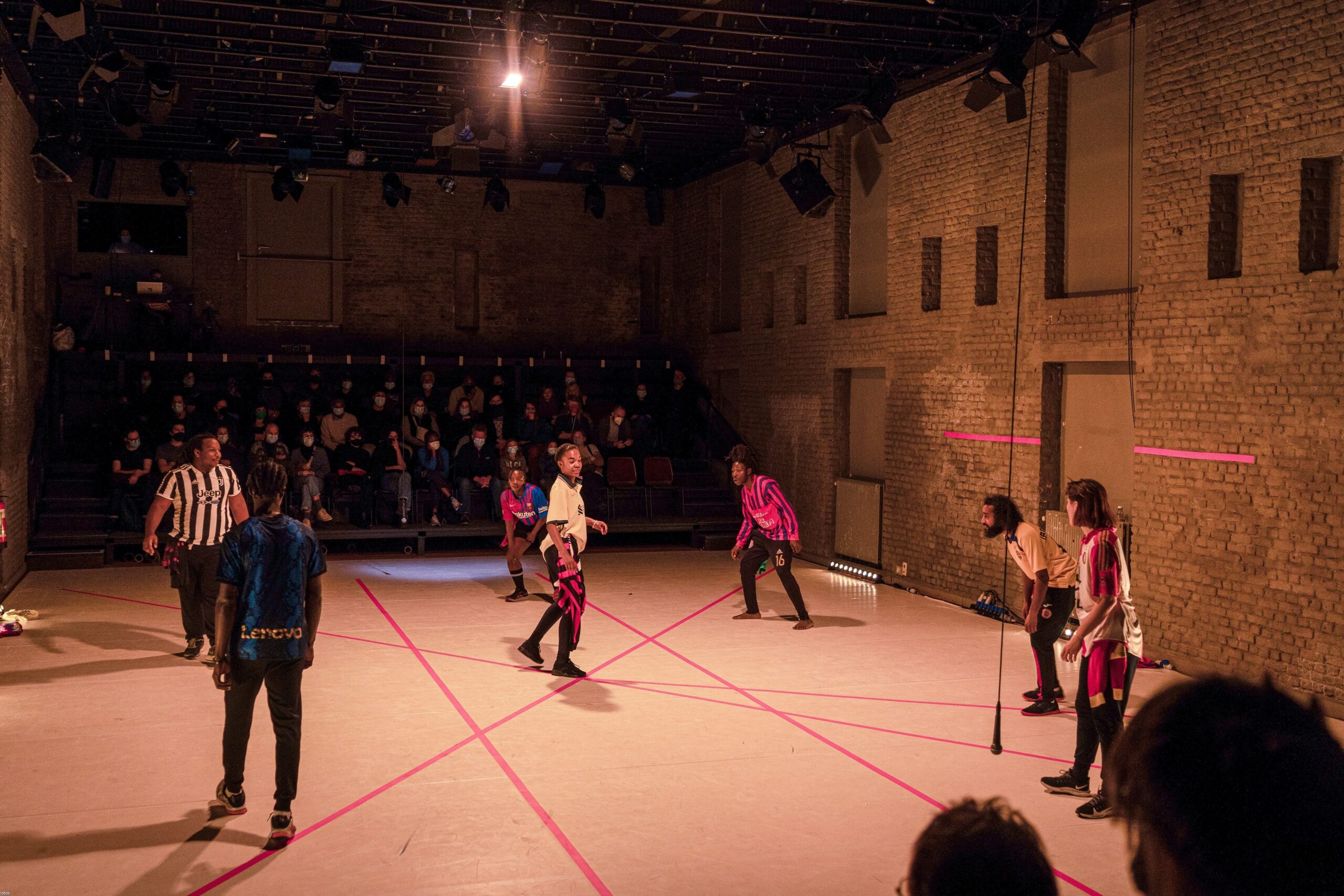 Le Maillot - One Size Fits All
Le Maillot - One Size Fits All© Globe Aroma
Traces For the Future is a participative audio programme between the Globe Aroma community and Brussels Belongs to Us BNA-BBOT (Bruxelles Nous Appartient – Brussel Behoort Ons Toe), an organisation based in Brussels that develops socio-artistic sound projects. The centre offers technical training courses to newly-arrived artists and creatives, and they learn how to produce a radio programme for broadcasting. An Vandermeulen elaborates: ‘The content always depends on what the group wants to explore. Our organisation does not tell them what to develop. The aim is to help them find funding, the people they would like to invite to participate, etc.’
For the theatre performance Le Maillot – One Size Fits All, the company consists of a group of outside artists (dancers, photographers, video producers, designers, etc.) and people affiliated with Globe Aroma. They are all passionate about football and everything is directed and produced by the sportsman and multidisciplinary performer Ahilan Ratnamohan. Based on this sports event, in which we see countless instances of shirt pulling between competitors, the play endeavours to deconstruct the aggressive and competitive nature of football, and to use this iconic item of clothing to build up a unique debate. Ahilan Ratnamohan thus shows us the entire universe hidden behind the football shirt, including the countries, the clubs, the towns, the villages, the sponsors, the oil companies, etc. A collaborative piece of theatre which is successfully performed at the Kaaitheater and at other cultural centres.
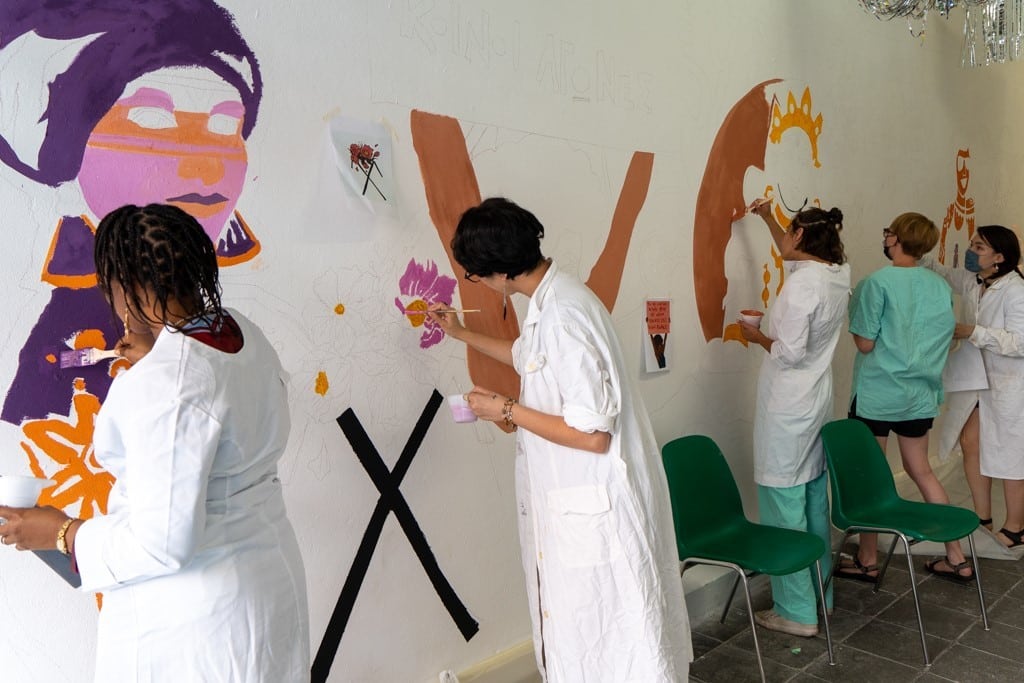 Members of Espace Fxmme create a mural.
Members of Espace Fxmme create a mural.© Globe Aroma
Talk with the Walls was initiated by Espace Fxmme, a group of women and non-binary persons set up within Globe Aroma, which debates issues such as intersectionality, solidarity, participation, creativity, inclusion, etc. They have full use of the centre every Thursday. Why? An Vandermeulen is emphatic: ‘For a long time, the centre has been attended by both men and women who did not always feel safe or free to do what they wanted. And for me, it was extremely important that these women had full use of this open house.’
This is how this group was created and this has led to a project that is focused on one main issue: how to create a safe environment in a space dominated by the presence of men? The debate first gave rise to the production of large furniture with mobile shelving, decorated in drawings or textile installations, which could be moved around and transformed as required. A mural was then created in the hallway. Globe Aroma invited the Russian visual artist Mirra Markhaëva to collaborate with Espace Fxmme. Inspired by strong and powerful characters of feminine/non-binary iconography, they jointly designed, all happy and in good humour, a powerful composition in vibrant colours representing sisterhood and feminist values.
Finally, for Getting Softer, the last part of the Espace Fxmme programme, the association invited female artists and artisans, experts in weaving and Afghan embroidery. This initiative has given food for thought on how to create softer environments where hospitality is key, as well as creating another opportunity to share stories, skills and life in general.
Cultural outings
Co-funded by the Flemish Community Commission, the aim of ART FOR ALL is to enable people to introduce Brussels art to the new arrivals. Every month, the centre organises visits to several art companies and Brussels festivals, for all types of disciplines (music, theatre, visual arts, etc.). It is a way for people who have just arrived to explore the new city through a cultural prism. An Vandermeulen says: ‘For this project, we are collaborating intensively with reception centres and organisations working on integration.’
A permanent group of some fifteen members organises a programme of multidisciplinary events at various art centres. These events are presented in eight languages, and the activities target all the newly arrived with an interest in culture. The selection is highly varied, ranging from, for instance, a film at a big mainstream cinema to a concert at a small underground venue somewhere. An Vandermeulen explains: “It is a way for us to create a type of subjective map of the city.’
Director Vandermeulen: 'An Our core values are focused on creating network connections and sharing artistic practices'
Globe Aroma organises these outings, meetings and debates with the actors, the visual artists and musicians, always with the aim of creating a network and links. The director emphasises that ‘these meetings lead to concrete results, such as exchanges with an artist who might come and do a workshop at Globe Aroma. Our core values are focused on creating network connections and sharing artistic practices.’

